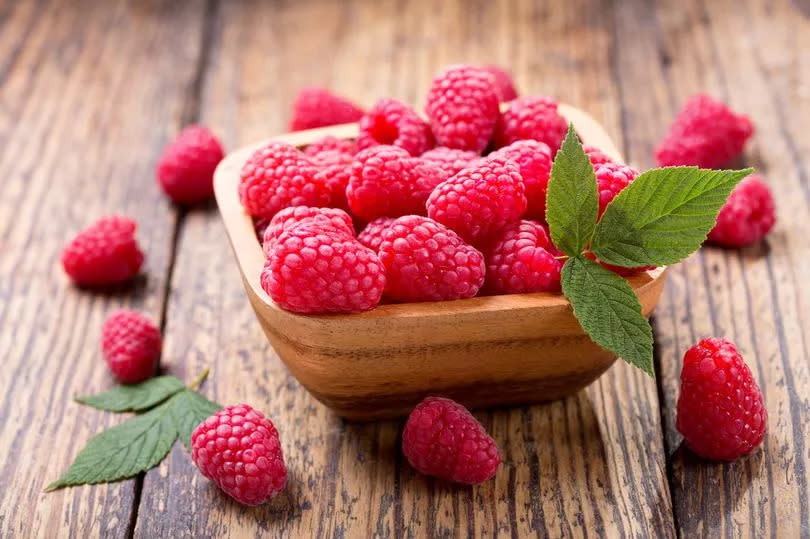The low sugar summer fruit that can help reduce signs of ageing

Raspberries, traditionally a summer fruit, are now available to buy fresh and frozen throughout the year. Their tangy yet subtly sweet flavour makes them an ideal snack.
Eating about 20 fresh berries counts as one of your five-a-day. Beyond that, raspberries are nutrient rich, low in calories and are good for you for number of other reasons.
With a low glycaemic index (GI) and high fibre content, raspberries are a useful inclusion if you need to monitor your blood sugar levels. Animal studies suggest that when raspberries are eaten alongside a high-fat diet, they may help lower blood sugar levels and improve insulin response.
This may be because raspberries are rich in tannins natural, plant compounds that inhibit the enzymes that break down starches. Raspberries are also packed with antioxidants that could potentially offer protection against cancer. Studies conducted on animals suggest that these berries might be beneficial in combating colon, breast and liver cancer.
The pinkish red berries are loaded with anti-inflammatory plant compounds, including anthocyanins. Research indicate that these fruits may help reduce arthritis symptoms, lower the risk of developing the condition, and minimise joint damage in those who do develop it.
Raspberries are a great source of polyphenols, protective plant compounds that may help reduce the physical signs of ageing and enhance balance and strength. These berries are also rich in vitamin C, which plays a crucial role in improving collagen production and may protect the skin from UV damage.
A 2017 study found that mice suffering from metabolic syndrome (a term used to describe a combination of diabetes, high blood pressure and obesity) showed improvements in weight and insulin sensitivity when fed a single serving of raspberries daily. While there is a body of research supporting these findings, more studies are needed to determine their relevance to humans.
Some of our favourite fruits, while tasty, are often packed with natural sugar. Raspberries are one of the lowest sugar fruits you can eat, with one cup containing just 5g. While they can sometimes taste a little tart, raspberries sweeten the more they ripen, making them a great pick for those with a sweet tooth.
Most of these tests and studies have been conducted on animal models, so more human trials are needed to fully understand the implications for us.

 Yahoo News
Yahoo News 
